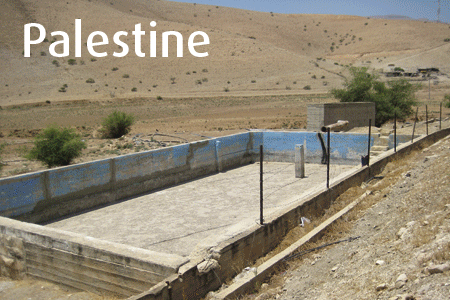
Water Wars
Issue 70 July 2010
As the global water situation becomes increasingly fragile, nations are beginning to recognise the scarcity of freshwater leading some to suggest that the next major world conflicts will be fought over water.
Potential flashpoints for ‘Water Wars’ are regions where rivers cross national boundaries. Often, it is the population closest to the river’s source which has the potential to monopolise water supply to nations further downstream.
One extremely contentious example is that of Turkey’s ‘GAP’ project. Instigated by the Turkish government with the aim of revitalizing the ailing economy of the southeast Anatolia region, the ambitious scheme aims to build an immense system of 22 dams and 19 power plants on the Tigris and Euphrates rivers by 2013. Once hailed by some as an inspirational example of sustainable development (many of the power stations will be hydroelectric and therefore not reliant on carbon-intensive fuels), the scheme would be flawless if not for the fact that Turkey is not the only nation which relies upon the Tigris-Euphrates river system. Serious concerns have been raised by their downstream neighbours Syria and Iraq – who use the rivers for the majority of their irrigation – about plans by Turkey to build dams and withhold significant amounts of water. Hostilities escalated to such an extent during the 1980s that Syria began funding the PKK (Kurdish separatists) in their armed fight against the Turkish government. During this period GAP construction almost came to a complete halt as Turkey focused on anti-terrorism measures and the PKK successfully damaged several dams and canals. Eventually Turkey struck a deal with Syria promising to retain only a certain amount of water from the Euphrates. However, relations between the two states are still extremely fractious and the possibility of armed conflict continues to lurk on the horizon.
More recently, an investigation by human rights group Amnesty International claimed that Israel is depriving inhabitants of the West Bank access to clean water. By withholding water from the Jordan River and dominating shared underground resources, the Israeli state is forcing Palestinians to survive on less than 70 litres of water each per day, compared to the 300 litres allocated to an Israeli living just over the border. What’s more, Palestinians are unable to dig their own wells without gaining an Israeli permit, many of which are denied. Water is so fundamental to human existence that such deprivation will surely serve to intensify violence in an area already in conflict.
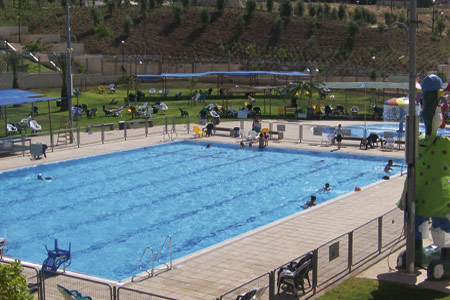
Israeli settlers enjoy the swimming pool in the Maaleh Adumim settlement, which is unlawfully established in the occupied West Bank in violation of international law.
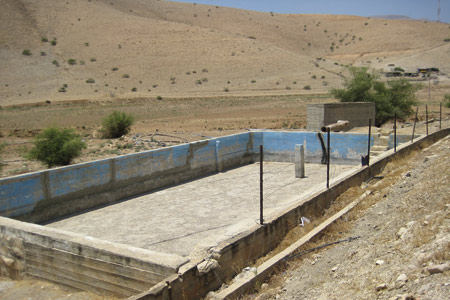
A water reservoir stands empty in a Palestinian village in the occupied Jordan Valley, whose residents depend on agriculture but face increasing restrictions in accessing water.
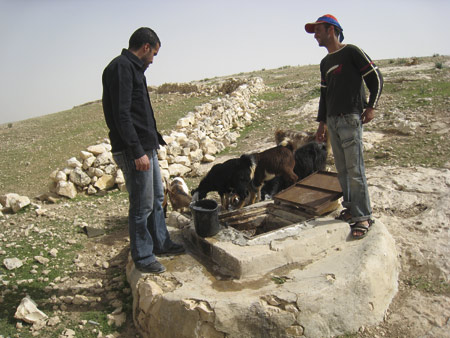
Shepherds in the village of Umm al-Kheir, in the south of the occupied West Bank: herding communities are not connected to the water network and rely on the harvesting and storage of rainwater using cisterns, which are often destroyed by the Israeli army.
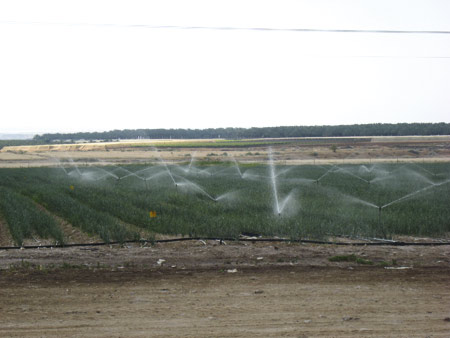
Irrigation sprinklers in Israeli settlements in the occupied Jordan Valley use water freely, while neighbouring Palestinian villages struggle to access water for drinking and other basic needs.
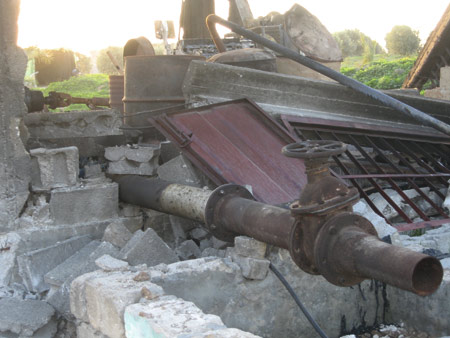
A water pump and well in the Zaytoun neighbourhood of Gaza City destroyed in an Israeli attack in January 2009.
Bookmark this |
|
Add to DIGG |
|
Add to del.icio.us |
|
Stumble this |
|
Share on Facebook |
|
Share this |
|
Send to a Friend |
|
Link to this |
|
Printer Friendly |
|
Print in plain text |
|

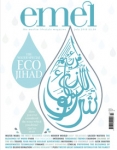
Comments
0 Comments